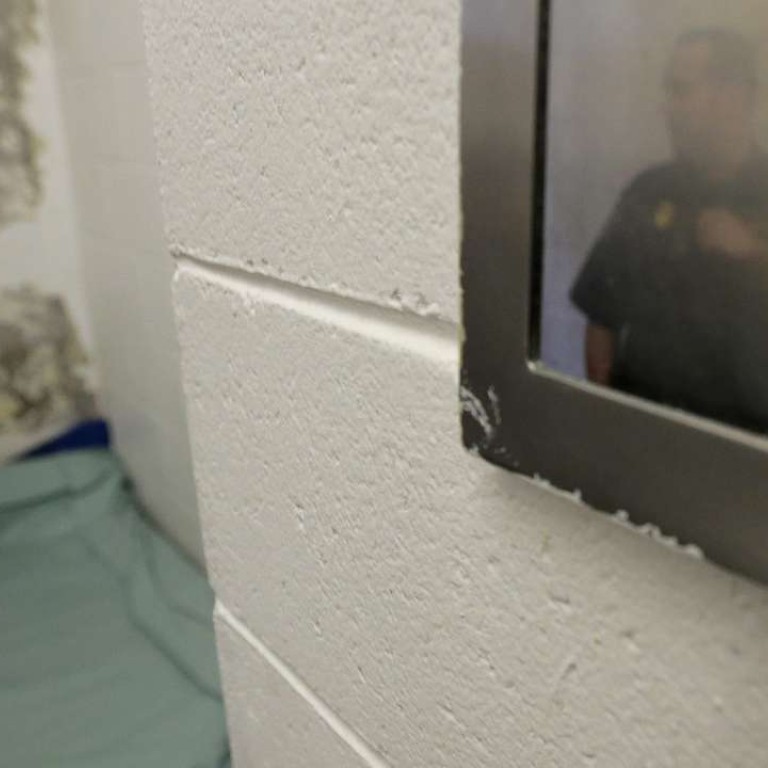
A case for solitary confinement
Grenville Cross says the recent legal challenge mounted by Norwegian mass murderer Anders Behring Breivik is part of a wider pushback against the use of the punishment, which, though harsh, may be inavoidable in some cases
The International Covenant on Civil and Political rights, which applies to Hong Kong, provides that “No one shall be subjected to torture or to cruel, inhuman or degrading treatment or punishment”. However, in many penal systems, including ours, the isolation of prisoners from the general prison population is common. South Africa’s Nelson Mandela, who underwent periods of solitary confinement while serving his 27-year prison sentence, called it “the most forbidding aspect of prison life”.
In 2011, the UN special rapporteur on torture, Juan Mendez, described solitary confinement as any regime where an inmate is held in isolation from others, except guards, for at least 22 hours a day. Although Mendez called for indefinite solitary confinement lasting more than 15 days to be banned, segregation undoubtedly plays an important role in the penal system. Solitary confinement helps the authorities maintain control of prisons, and it also reduces the chances of dangerous criminals liaising with others. Although some prisoners are segregated for their own safety, isolation is also used as a punishment.
In America, University of California Santa Cruz psychology professor Craig Haney has studied the impact of solitary confinement, and described how the initial terror at being cut off from other people is followed by long-term depression, hopelessness and intellectual decay. Quite clearly, people who undergo prolonged isolation have little prospect of ever being successfully rehabilitated, one of the objectives of criminal justice.

Norwegian mass-murderer Anders Behring Breivik back in court to sue for ‘human rights abuses’
Last month, Norwegian mass killer Anders Behring Breivik told an Oslo court that his five years in solitary confinement violated his human rights. He claimed his mental health suffered from being confined to his cell for 23 hours a day. His contacts with guards and a priest were through a glass barrier, and his only physical contact since imprisonment was with his mother, who made a visit to say goodbye shortly before her death. However, the government replied that Breivik has to be isolated not only for his own safety, but also because he is dangerous and might exert a malevolent influence over other prisoners – a legitimate concern, if true.
However wicked criminals may be, or how deserving of punishment, it is in nobody’s interests to destroy their mental health, or hopes for the future, as some places now acknowledge. Last year, for example, after George Ruiz, a then 72-year-old who spent 31 years in solitary confinement in a California prison as a suspected affiliate of a Mexican crime gang, won a class lawsuit, the state of California agreed to limit isolation to defined periods, not exceeding five years, and to release from isolation almost all of the prisoners who, like Ruiz, had been segregated for over 10 years.

The tigers’ cage: inside China’s Qincheng prison
In January, US President Barack Obama announced a ban on solitary confinement for juveniles in federal prisons, explaining that “research suggests that solitary confinement has the potential to lead to devastating, lasting psychological consequences”. In Canada, the prime minister Justin Trudeau has directed the justice ministry to implement recommendations “that would ban long-term solitary confinement for federal inmates”.
Solitary confinement will sometimes be unavoidable, but whether it actually breaches a prisoner’s human rights depends on the circumstances.
In Hong Kong, the prison rules entitle the authorities to order that a prisoner shall not associate with other prisoners for particular periods, which can be prolonged, although, when this occurs, it is regularly reviewed. Segregation may be required “for the maintenance of good order or discipline”, but it may also be “in the interests” of the prisoner, as where a sex offender or a whistle-blower faces reprisals.
Solitary confinement is a harsh experience, which the authorities must try to ameliorate. This involves, for example, giving the prisoner ample opportunities for exercise and allowing reasonable access to family. Provided this is done, and so long as the isolation is not indefinite and is periodically reviewed, the regime is justifiable in appropriate cases, and should be resistant to legal challenge.
Grenville Cross SC is a criminal justice analyst

